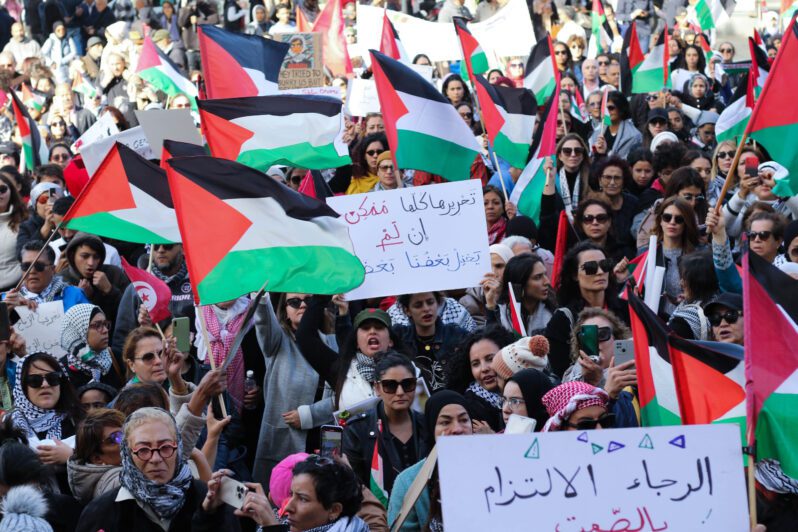Main Arab Legal Events: The Legal Agenda’s Perspective Weekly Note no 22 (28 January- 4 February 2013)

Egypt: The Constitutional Court Rejects Appeal of “Female Circumcision” Incrimination Law
Salafism at the High Judicial Institute in Yemen: Niqab and Separation Between Males and Females
Three Judicial Matters in Public Life in Egypt, Tunisia and Yemen
“Port Said Emergencies”, Attack on the Janduba Court and Failure to Implement the Verdict Relevant to the Wounded Revolutionaries
1- Egypt:
-The Constitutional Court rejected the unconstitutionality appeal of the penal code article incriminating “female circumcision”.
-After the events that followed the Port Said verdict, the state of emergency was declared in Port Said, Suez and Ismailia districts, thus resurrecting ghosts of previous states of emergencies that lasted for decades in Egypt and were one of the main reasons behind the Egyptian revolution. In an attempt to justify such an action, the Minister of Justice stated that the state of emergency is only declared in respected countries, since exceptional circumstances require exceptional laws, adding that Egyptians are misusing their freedom of demonstration.
-The General Prosecution is facing a group called “Black Book” whose members’ identity remains unknown, and whose aim is to topple the Muslim Brotherhood regime. The General Prosecutor Talaat Abdullah issued a decision to arrest the group’s members in all the Egyptian districts accusing them of terrorism. On the other hand, judges and members of the General Prosecution submitted a memorandum to the Supreme Judicial Council considering the decision as illegal due the lack of rules of evidence for the purpose of any order of arrest.
2- Tunisia:
-Judges and all the employees of the Janduba First Instance Court were attacked by a group of individuals as a sign of protest against an examining judge’s judicial order of release of a suspect in a murder. Backed by lawyers, judges went on a three-day strike denouncing such attacks, and the Ministry of Justice itself condemned such an attempt to undermine the State’s authority.
-The Ministry of Justice issued the partial judicial nominations’ decree. Consequently, the Tunisian Observatory for the Independence of the Judiciary condemned the decree, describing it as illegal for having been issued by a dissolved Supreme Judicial Council inherited from the ancient regime. It should be noted that it is the second judicial movement that marked the transitional justice era and revived the dissolved Council. On another note, the Association of Tunisian Judges announced that they would wear red badges again starting February 4, to protest against failure to take efficient measures towards reforming the Judiciary. This comes as the second movement after a similar one in April 2012.
3- Yemen:
-A “Salafisation” of the Judiciary in Yemen? Female students were forced to wear the Wahhabi-style Niqab. Furthermore, The Salafi leader Mohammad Al-Sadek Al-Moughlas newly-appointed to the Teaching Board separated male students from female ones in his lectures. Al-Moughlas had previously stated that the involvement of women in judicial matters was a mistake that ought not to be repeated ever again.
-The Yemeni Judiciary issued the first death penalty verdict against an accused of killing a revolutionary. The verdict comes as a victory for the wounded revolutionaries. It is worth signaling that the injured revolutionaries have gone on a hunger strike as a sign of protest against the delay in implementing the legal verdict ordering the government to pay their treatment costs. They demanded that all those responsible for such a delay be referred to the General Prosecution, at a time where the verdict appeared to have stirred the public opinion.
-The first legal claim relevant to party-sharing of public office in Yemen has been filed to the first instance administrative court against the Ministry of Higher Education for having violated the principles of equality of citizens for party and political purposes.
Beyond the Weekly Note:
-Kuwait:
Amid the ongoing series of trials on the charge of “lese majeste”, a Kuwaiti blogger and opponent was condemned to 5 years imprisonment for having offended the dignity of the Prince. It is the third case of its kind in the country ever since the beginning of this year.
Prepared by Christelle El-Feghaly



